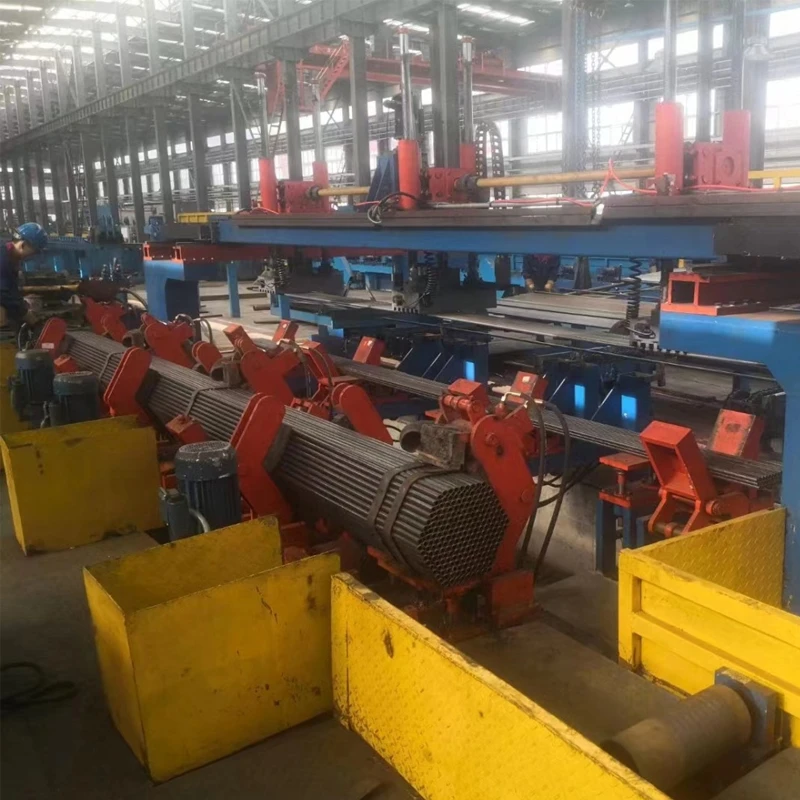steel pipe line
The Importance of Steel Pipeline Systems in Modern Infrastructure
Steel pipelines play a crucial role in the effective transportation of various fluids and gases across vast distances. As a strong and durable material, steel has become the preferred choice for pipeline construction, supporting industries such as oil and gas, water supply, and chemical processing. In this article, we will explore the significance of steel pipeline systems, their benefits, challenges, and future innovations.
The Role of Steel in Pipeline Construction
Steel pipelines are renowned for their exceptional strength and resistance to pressure, making them ideal for transporting high-pressure fluids and gases. Their ability to withstand extreme temperatures and various environmental conditions ensures reliability in operation. Additionally, steel's longevity reduces the need for frequent replacements, making it a cost-effective choice in the long run.
In the oil and gas industry, for instance, steel pipelines are used to transport crude oil, natural gas, and refined products over great distances. These pipelines are engineered to meet rigorous safety and performance standards, minimizing the risk of leaks and ruptures. The durability of steel also allows these pipelines to be buried underground, preserving the natural landscape while ensuring efficient transportation.
Benefits of Steel Pipeline Systems
One of the primary advantages of steel pipeline systems is their high tensile strength. This property allows steel pipes to carry heavy loads without deforming, which is essential in maintaining the integrity of the system under pressure. Moreover, steel is largely resistant to external impacts, making it suitable for installation in areas prone to environmental stressors.
Steel pipelines also offer excellent corrosion resistance when treated and coated properly. By applying protective layers, such as galvanization or epoxy coatings, the lifespan of steel pipelines is extended significantly, reducing maintenance costs. These coatings protect the steel from corrosive substances, whether those are chemicals in a processing plant or saltwater in coastal regions.
steel pipe line

Challenges in Pipeline Management
Despite their numerous advantages, steel pipelines are not free from challenges. The manufacturing process, including welding and coating, requires meticulous quality assurance to prevent weaknesses in the structure. Inadequate welding can lead to critical failures, resulting in costly repairs and potential environmental hazards.
Additionally, steel pipelines are susceptible to corrosion if they are not adequately maintained. Regular inspections and maintenance are necessary to identify and address any signs of wear or damage. Technologies, such as smart pigging—wherein a device is used to inspect the interior of the pipeline—are increasingly employed to enhance monitoring processes.
Innovations Shaping the Future
The future of steel pipeline systems is being shaped by advancements in materials science, engineering, and technology. Innovations such as high-strength steel alloys and composite materials are being developed to enhance the performance and efficiency of pipelines further. These materials promise to increase resistance to environmental factors and reduce weight, making installation easier and less costly.
Moreover, the integration of digital technology into pipeline management is revolutionizing the industry. Geographic Information Systems (GIS), remote monitoring, and data analytics allow for real-time tracking of pipeline conditions, enabling operators to respond proactively to potential issues. This increased visibility will help enhance safety and efficiency, securing the vital role that steel pipelines play in our modern infrastructure.
Conclusion
In conclusion, steel pipelines are an indispensable part of contemporary infrastructure, facilitating the transportation of essential resources while ensuring safety and efficiency. As innovations continue to emerge, the industry will likely see enhanced materials and technologies that address existing challenges and improve pipeline performance. Understanding the significance of steel pipeline systems is crucial for ensuring a sustainable and reliable future for the industries they support. Investing in these systems today will pave the way for a more connected and resilient tomorrow.
-
High Frequency Straight Seam Welded Pipe Production Line-BzZhou Xinghua Machinery Equipment Manufacturing Co., LTD.|line pipe steel&welded gas pipeNewsJul.30,2025
-
High Frequency Straight Seam Welded Pipe Production Line-BzZhou Xinghua Machinery Equipment Manufacturing Co., LTD.|High Precision&Automated SolutionsNewsJul.30,2025
-
High Frequency Straight Seam Welded Pipe Production Line - BzZhou Xinghua Machinery Equipment Manufacturing Co., Ltd.NewsJul.30,2025
-
High Frequency Straight Seam Welded Pipe Production Line-BzZhou Xinghua Machinery Equipment Manufacturing Co., LTD.|Precision Welding, High EfficiencyNewsJul.30,2025
-
High Frequency Straight Seam Welded Pipe Production Line|BzZhou Xinghua|Precision Welding&EfficiencyNewsJul.30,2025
-
High Frequency Straight Seam Welded Pipe Production Line - BzZhou Xinghua|Precision Engineering&EfficiencyNewsJul.30,2025


